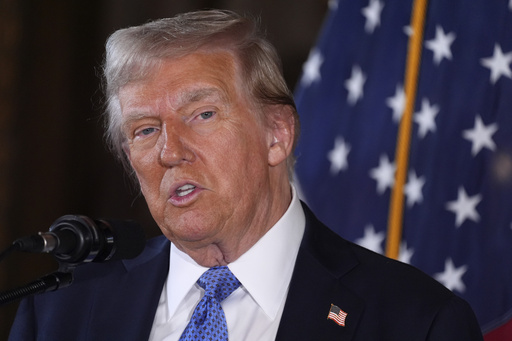WASHINGTON — President-elect Donald Trump effectively dealt a severe blow to bipartisan budget negotiations in Congress on Wednesday by rejecting a proposed spending measure filled with what he called “giveaways” to Democrats. This shift came after influential billionaire Elon Musk rallied public sentiment against the bill, spurring Republican lawmakers to announce their opposition.
In a statement issued alongside Vice President-elect JD Vance, Trump halted progress on the budget negotiations. This move coincided with a series of posts by Musk on social media, where he criticized the legislation for its alleged excessive expenditures. Musk passionately urged his followers, “Stop the steal of your tax dollars!” and hinted at potential primary challenges for lawmakers who supported the budget agreement, a sentiment that Trump reaffirmed in his own following remarks.
This incident spotlighted Musk’s increasing political clout, as Trump has named him, alongside entrepreneur Vivek Ramaswamy, to lead the newly established Department of Government Efficiency. This task force aims to identify ways to streamline the federal workforce, eliminate certain programs, and reduce regulatory burdens. Republican Representative Andy Barr from Kentucky noted a surge in calls from constituents expressing their concerns over the budget. Barr stated, “My phone was ringing off the hook. The people who elected us are listening to Elon Musk.”
Musk’s active engagement in halting the budget bill underscores his unprecedented influence as a private citizen. Besides transforming the social media platform X into a significant communication tool, Musk holds the title of the wealthiest person globally, is a close advisor to Trump, and oversees companies involved in electric car manufacturing and space exploration. Democrat Representative Brendan Boyle of Pennsylvania remarked on social media that Musk is “now calling the shots.”
In their joint statement, Trump and Vance called for the Republicans to revisit the negotiations, asserting that failure to do so would signify “a betrayal of our country.” They also proposed discussing the extension of the debt ceiling while President Joe Biden remains in office, suggesting that it is more prudent to address the issue now rather than wait until their administration.
Trump’s strong opposition to legislation that was perceived as essential injected a sense of turmoil and political maneuvering within the government, reminiscent of his administration’s earlier disputes. This turn of events posed a challenge for House Speaker Mike Johnson, who had worked diligently on the bill amid concerns of a potential leadership crisis similar to those experienced last year, especially given the narrow Republican majority.
Many members of Congress were engaged in holiday festivities when Trump made his announcement against the bill, leading Representative Steve Womack from Arkansas, an experienced Republican member, to express his frustration, “I’ve been here 14 years, so nothing surprises me anymore. We shouldn’t be in this mess.”
The Biden administration voiced concerns about the looming threat of a government shutdown. White House Press Secretary Karine Jean-Pierre urged Republicans to refrain from politicizing the bipartisan agreement, warning that such actions would harm American citizens and destabilize the nation.
Grover Norquist, president of Americans for Tax Reform, expressed anxiety over the evident lack of a strategic plan to address the conflict. He acknowledged Musk’s ability to draw attention to governmental reform but implied that a prominent business figure might not be the most suitable leader for Congressional budget discussions. “He doesn’t know politics like he knows physics,” Norquist noted.
Conversely, some lawmakers welcomed Musk’s vocal participation. Republican Representative Dan Bishop from North Carolina observed, “In five years in Congress, I’ve been awaiting a fundamental change in the dynamic. It has arrived.”
Musk’s criticism of the budget proposal began immediately upon its release and continued throughout Wednesday, proclaiming that any legislator who sides with the bill “deserves to be voted out in 2 years!” He labeled the proposal as “one of the worst bills ever written.” However, Musk also propagated inaccurate information, alleging that the legislation contained $3 billion for a new football stadium in Washington. In reality, the bill merely involved transferring land ownership from the federal government to the city for future development in that area.
Feeling empowered by the public’s response, Musk declared, “The voice of the people was heard. This was a good day for America.” In contrast, Democratic House Leader Hakeem Jeffries cautioned that the fallout from the situation would lie squarely with the Republicans, stating, “You break the bipartisan agreement, you own the consequences that follow.”


